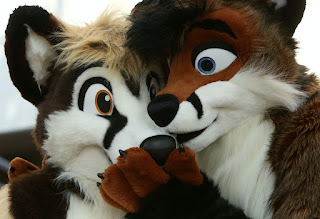I came across this story over the weekend-- the Central Academy of Technology and Arts in North Carolina has drawn the ire of Moms for Liberty and other reactionary folks by staging a production of Jesus Christ, Superstar in which casting was done without any consideration for gender.
I had several thoughts, including flashing back to my high school days in the early 1970s when Superstar was all the rage and was also stirring up all the rage. The title song was a radio hit and so many pearls were clutched , and then clutched even more when folks discovered that the single had King Herod's Song on the B side, which in retrospect strikes me as some top quality trolling, because taken out of context that song certainly seems a tad blasphemous. I also vividly remember that in the world of church youth ministries, Superstar was greeted with great enthusiasm. The JCS flap was my introduction to that phenomenon in which many people who get all offended on behalf of religion are not actually all that involved in the church.But mostly my thought was that gender flipping of roles in high school theater is not remotely new.
I've been involved in amateur and school theater for ages, and here's the thing. Shows are written with heavily male casts. But in school and community theater, mostly what you get coming out are females. School and community theater are, in some respects, harder on directors than a big Broadway production. In the pros, you can say, "For this part I want an actor who's 5'10" with blue eyes and blonde hair and can dance, act and juggle fire." In the school and amateur world, you get what you get, and you have to figure out how to make a show out of it.
So you do what you have to do. I cannot even count the number of times I've switched role genders. Some don't make the slightest bit of difference--the narrator in Joseph and the Amazing Technicolor Dreamcoat could be anybody, or even a couple of anybodies. And why not older female authority figures, like Mr. Lundie in Brigadoon. I've done Once Upon a Mattress a couple of times; it's a great little show and it has a brace of main characters who can be either gender. It's also a great example of a show that's just more interesting if you mix it up rather than just using a stage full of male characters.
That's part of what you discover when you start casting women in roles originally written for men; it unlocks all sorts of cool stuff. Make Bell's crazy father into her crazy mother in Beauty and the Beast and all sorts of little things shake loose.
I once directed an in-the-park production of Hamlet, costumed to look like a generation story in the sixties, and turned Laertes into Ophelia's older sister, and that creates some really interesting dynamics as well as adding a female character who's not a terrible mess (and don't come at me about "historical accuracy" in a work by William "I giveth not one fig for thy true historie" Shakespeare.
Or a production of The Fantasticks in which the fathers are played by women playing men. Or the gazillion chorus members that have been asked to cross dress. The list goes on and on. Make the changes a few times out of necessity and you start seeing that musical theater's endless tendency to use male characters as a default setting deserves to be challenged and ignored.
That's really at the heart of all our arguments about gender and race in fiction--the long-standing idea that a straight white male is the default setting for all characters and you can have other types of characters only as long as you can make a case for them--but the straight white male is the character that you never have to make a case for. High school theater upends this by making a very simply case--not enough guys came out for this show--but once you've broken the habit, you can start thinking of casts without that default, and it opens a whole world of rich possibilities.
(And that's before we even get to the "straight" default, which is not obvious to the audience, but how many young LGBTQ performers have come up playing straight characters on stage.)
CTA has a famously successful theater program; I suspect their decision had nothing to do with necessity and everything to do with opening up more opportunities and possibilities for their cast and production. I'll also bet dollars to donuts that none of the M4L crew has much experience with high school theater (not even as audience members) because to anyone who spends time in that world, cross casting is not a shocking new surprise. In that respect, necessity pushed high school theater productions ahead of the culture at large. No reason they shouldn't stay there.





